The business of the metaverse
As Facebook’s rebrand once again resurfaces the concept of the metaverse, is this a space all businesses should finally be paying attention to?

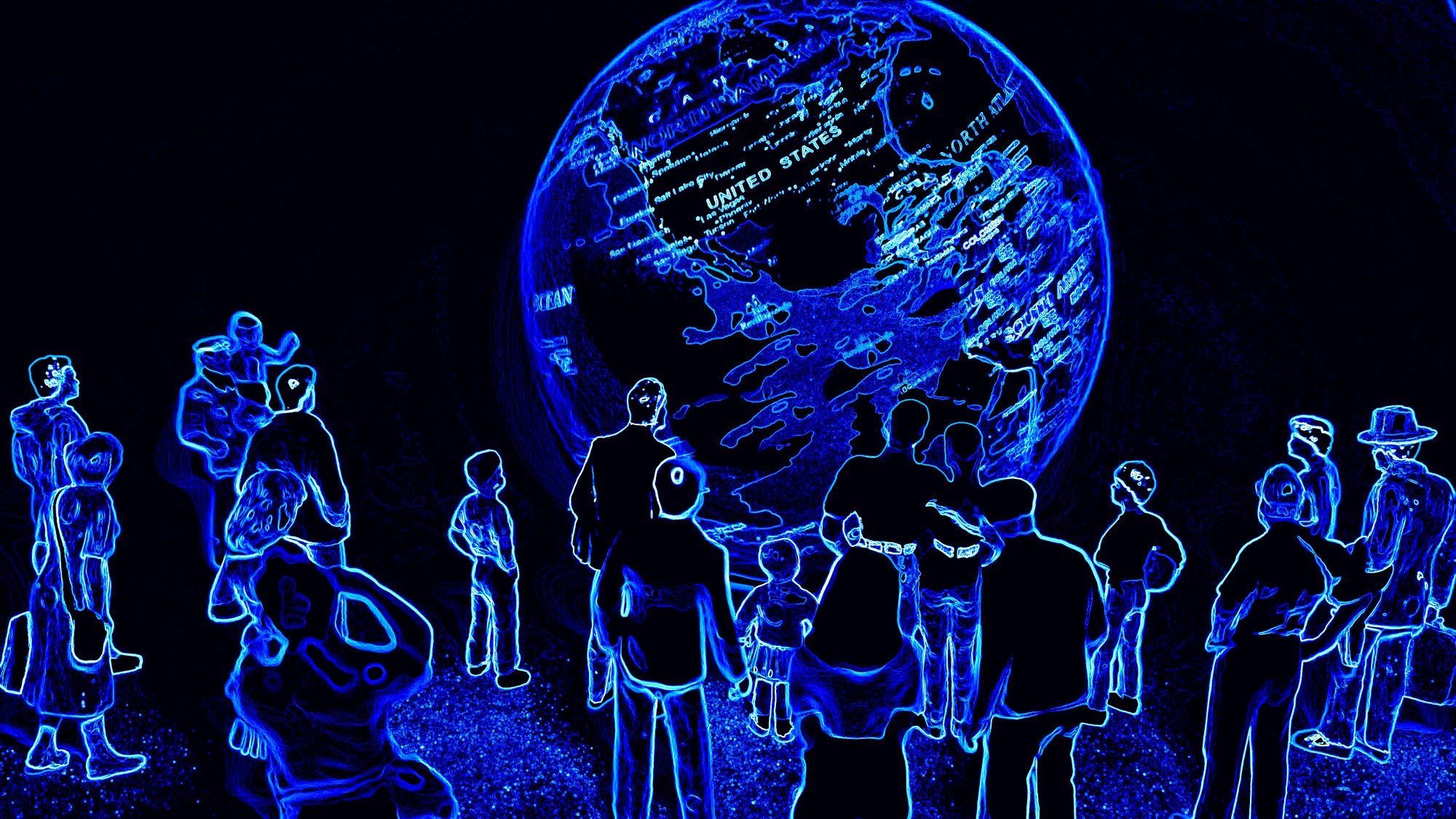
Coined by renowned cyberpunk author Neal Stephenson in his seminal 1992 novel Snow Crash, avatars interact with each other in a shared space he dubbed the metaverse. The 2018 film Ready Player One articulated, too, for many, the realisation of what the metaverse will become once we’re equipped with the technology to deliver these immersive experiences.
Virtual environments have existed since the inception of the web; forums and chat rooms are a form of virtual meeting place, for example. The early experiments of Jaron Lanier with virtual reality (VR) pushed the concept of the metaverse into a three-dimensional space, while Second Life defined how a three-dimensional virtual meeting space could work. Today, games such as Minecraft and Roblox are the latest iterations of the metaverse.
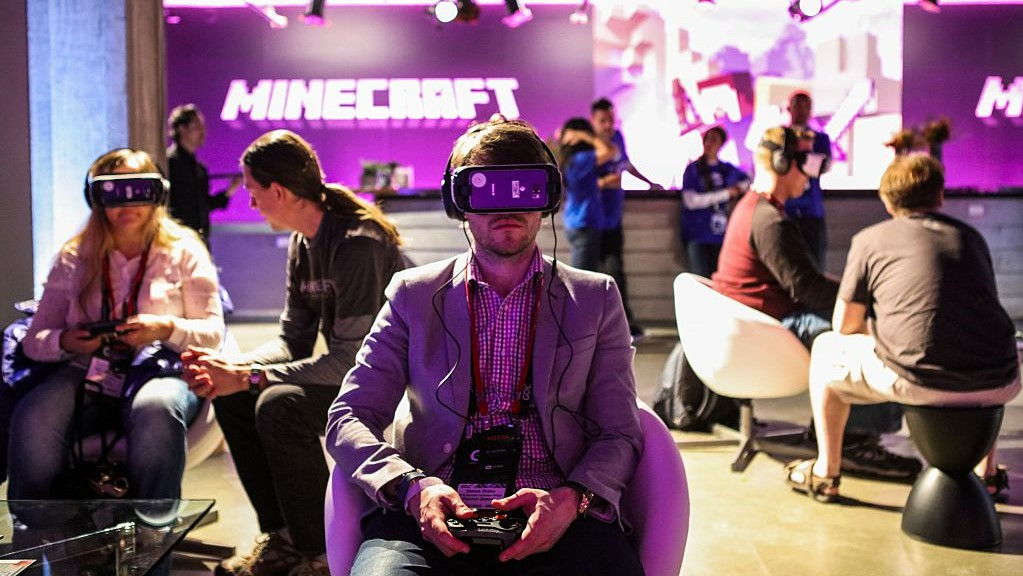
Recent incarnations of the metaverse manifest in popular games like Minecraft
Enter Facebook and its ambitions to create what founder Mark Zuckerberg calls “the successor to the mobile internet”. In this space, “we'll be able to feel present – like we're right there with people no matter how far apart we actually are”. Using the company's Oculus VR headsets, combined with advanced augmented reality (AR), a Ready Player One-like environment is promised. Not to be outdone, other companies have also detailed similar plans, most notably Microsoft with ambitions to adapt Teams to offer a more metaverse-like experience, in the form of Mesh. Despite the hype, are these new spaces actually primed for businesses to reach new heights?
Always online
“Welcome to Mesh for Teams,” announced Microsoft technical fellow Alex Kipman in November, who insisted this vision of mixed reality, 12 years in the making, is something customers are clamouring for. Accenture, indeed, has recently created a digital twin of its headquarters using Mesh with the capacity to reside 10,000 employees within this virtual space.
The idea is to use existing devices to connect individuals in prebuilt spaces represented by their avatars. They hope this new space isn't just Microsoft Office on virtual steroids, but a new way of not just meeting but collaborating. For some, though, Facebook’s reimagining of the metaverse is nothing short of a disaster. Roger McNamee, an early Facebook investor, for example, told BBC News: "It's a bad idea and the fact we are all sitting and looking at this like it's normal should be alarming everyone. Facebook should not be allowed to create a dystopian metaverse,” he added.
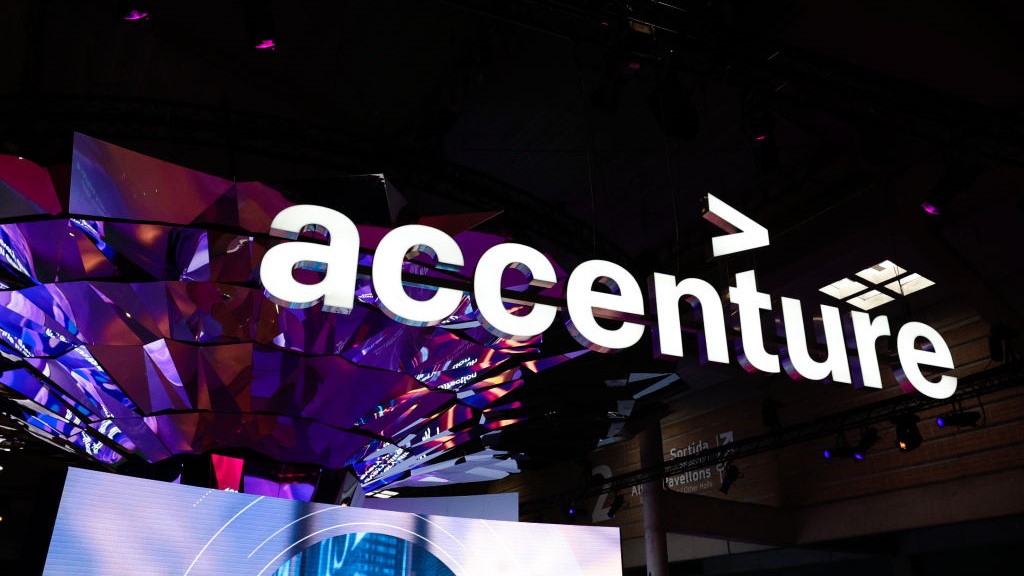
Accenture recently used Mesh to build a digital twin of its HQ, with a capacity for 10,000 participants
Sign up today and you will receive a free copy of our Future Focus 2025 report - the leading guidance on AI, cybersecurity and other IT challenges as per 700+ senior executives
VR is in every business’ future, though, according to CEO of Mesmerise, Andrew Hawken. "What we've seen Zuckerberg do with the metaverse is show that one of the most prominent tech companies in history just bet the farm on VR,” he tells IT Pro. “I can't think of a more bullish signal that business will be conducted in VR than that. Hearing Zuckerberg's words, I don't believe it will be long before large businesses have teams dedicated to exploiting this medium.”
Zuckerberg's dream still needs technologies to catch up with the hype, however, Niklas Bakos, chief strategy officer and founder of Adverty, points out. "Mostly, the hype cycle around the metaverse involves products and infrastructure that don’t quite exist yet,” he cautions. “To render genuinely compelling environments, we need quantum computing, mature blockchain technology, stable cryptocurrencies and protocols around non-fungible Tokens (NFTs). The goggles, headsets, haptic interfaces, and digital skins we will presumably use haven’t been made yet. Red Dead Redemption 2 was eight years in development. Building an entire, decentralised virtual world, one with its own economic systems, takes time.”
Open for business
Are we going to see a land grab as the metaverse takes shape? Nextech AR, for example, acquired ARWAY, a firm specialising in AR and AI mapping applications, in August, priming it to exploit the metaverse. Businesses reluctant to pursue strategies involving any migration to a shared virtual space could be left behind, though, with more agile companies beating them to the punch on exploring this potentially highly lucrative space. Startups may also challenge the incumbents across various sectors with metaverse-focused services.
“The metaverse is not a new concept, frankly, but with Facebook attempting to put its stamp on it, there will be a lot of business sectors eager to take advantage of Meta’s offering,” explains Rob Nash, founder and MD at the intelligent self-service agency, 4 Roads. “Nike has already appointed a ‘head of metaverse.’ This isn’t surprising, given the fashion industries previous forays into AR-enabled experiences. Consumer industries like travel and banking – even health – are also obvious ones to benefit. In the B2B sector, too, it has the potential to revolutionise training and remote working practises.”
For businesses, the metaverse could become a highly lucrative space for digital products. For example, within virtual gaming, the purchase of virtual tools and other artefacts is commonplace. The metaverse could, therefore, become a commercial marketplace with much further reach. A business, for example, could create a store in the metaverse and sell unique virtual items to collectors. Gucci has already experimented with this on Roblox. Indeed members of Gen Z, says vice president for brand partnerships at Roblox, sometimes see virtual products as more valuable than physical ones. The traceability of virtual goods makes counterfeiting difficult, too, unlike real-world designer goods.
Immersive futures
How the metaverse actually manifests for businesses and their customers remains to be seen. Parodies such as Icelandverse, an “entirely immersive open-world experience” and continued advances in AR, will temper the enthusiasm for a fully immersive space that virtualises the web’s capabilities.
The business opportunities could be vast, however, Garry Williams, business director, UNIT9, tells IT Pro. "The biggest overarching benefit is that owning a virtual brand world allows all their activities to be brought together in one place. Gone are the days of separate apps for each new campaign, temporary microsites for limited edition products, and online events for different time zones,” he explains. “With a virtual brand world, all of this can live together in one easily accessible location for audiences around the world to tap into and enjoy around the clock.”
Nash also points out that we haven't even considered the security and privacy implications: "When it comes to the metaverse more generally, there are numerous challenges around regulation, privacy, sovereign boundaries and more to consider. Regarding Mark Zuckerberg's vision – I'd urge caution.
“Getting into bed with Meta means relinquishing control to Meta and its tech stack. This limits your control and brings challenges around privacy and the control of customer information. It's not as if Facebook has a great track record in this regard, so businesses need to tread with caution there.”
It’s certainly early days for the metaverse as it moves into its next stage of development. For businesses, as with all new technologies, whether the metaverse in its current incarnation has value will require a detailed assessment of what’s actually possible within these virtual spaces, and how this aligns with their development plans and the customer touchpoints already in use. With organisations decentralising their workforces in light of the pandemic, as well as their IT infrastructure, the metaverse could manifest as a natural evolution of workplace collaboration for many, as well as a means of better connecting with customers.
David Howell is a freelance writer, journalist, broadcaster and content creator helping enterprises communicate.
Focussing on business and technology, he has a particular interest in how enterprises are using technology to connect with their customers using AI, VR and mobile innovation.
His work over the past 30 years has appeared in the national press and a diverse range of business and technology publications. You can follow David on LinkedIn.
-
 Zoom CEO Eric Yuan thinks AI will pave the way for a three-day week – and he’s not the only big tech exec excited about reduced working hours
Zoom CEO Eric Yuan thinks AI will pave the way for a three-day week – and he’s not the only big tech exec excited about reduced working hoursNews Yuan joins Nvidia CEO Jensen Huang and Bill Gates in touting the potential for AI to unlock reduced working hours
-
 Big Tech AI alliance has ‘almost zero’ chance of achieving goals, expert says
Big Tech AI alliance has ‘almost zero’ chance of achieving goals, expert saysNews Companies like Microsoft, Google, and OpenAI all have competing objectives and approaches to openness, making true private-sector collaboration a serious challenge
-
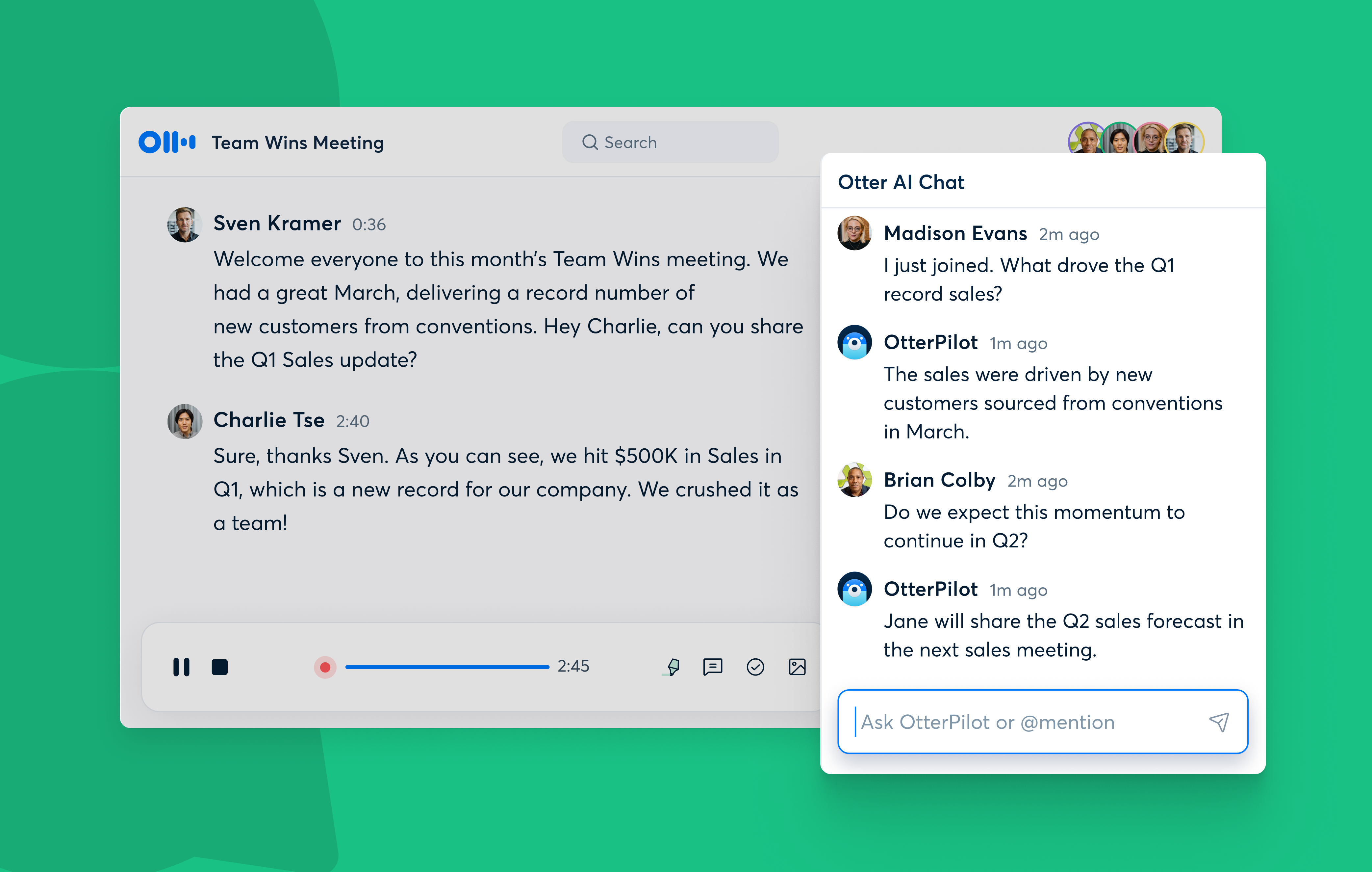 Otter.ai brings collaborative AI to meetings with Otter AI Chat
Otter.ai brings collaborative AI to meetings with Otter AI ChatNews The speech-to-text giant has set its sights on contextual AI
-
 Slack says automation can save every employee a month of work per year
Slack says automation can save every employee a month of work per yearNews Research from Slack found that workers believe generative AI tools will revolutionize productivity
-
 Generative AI has left the metaverse in the dust
Generative AI has left the metaverse in the dustOpinion Generative AI demonstrating tonnes of business use cases only serves to highlight the hopelessness of the metaverse
-
 Meta's earnings are 'cause for concern' and 2023 looks even bleaker
Meta's earnings are 'cause for concern' and 2023 looks even bleakerAnalysis Calls for investor faith in metaverse tech only emphasise the worries that its investment strategy won't pay off
-
 Seven steps to keeping metaverse meetings safe and secure
Seven steps to keeping metaverse meetings safe and secureIn-depth There are practical measures you can take to keep virtual meetings productive, safe and ethical as your team embraces VR-powered spaces
-
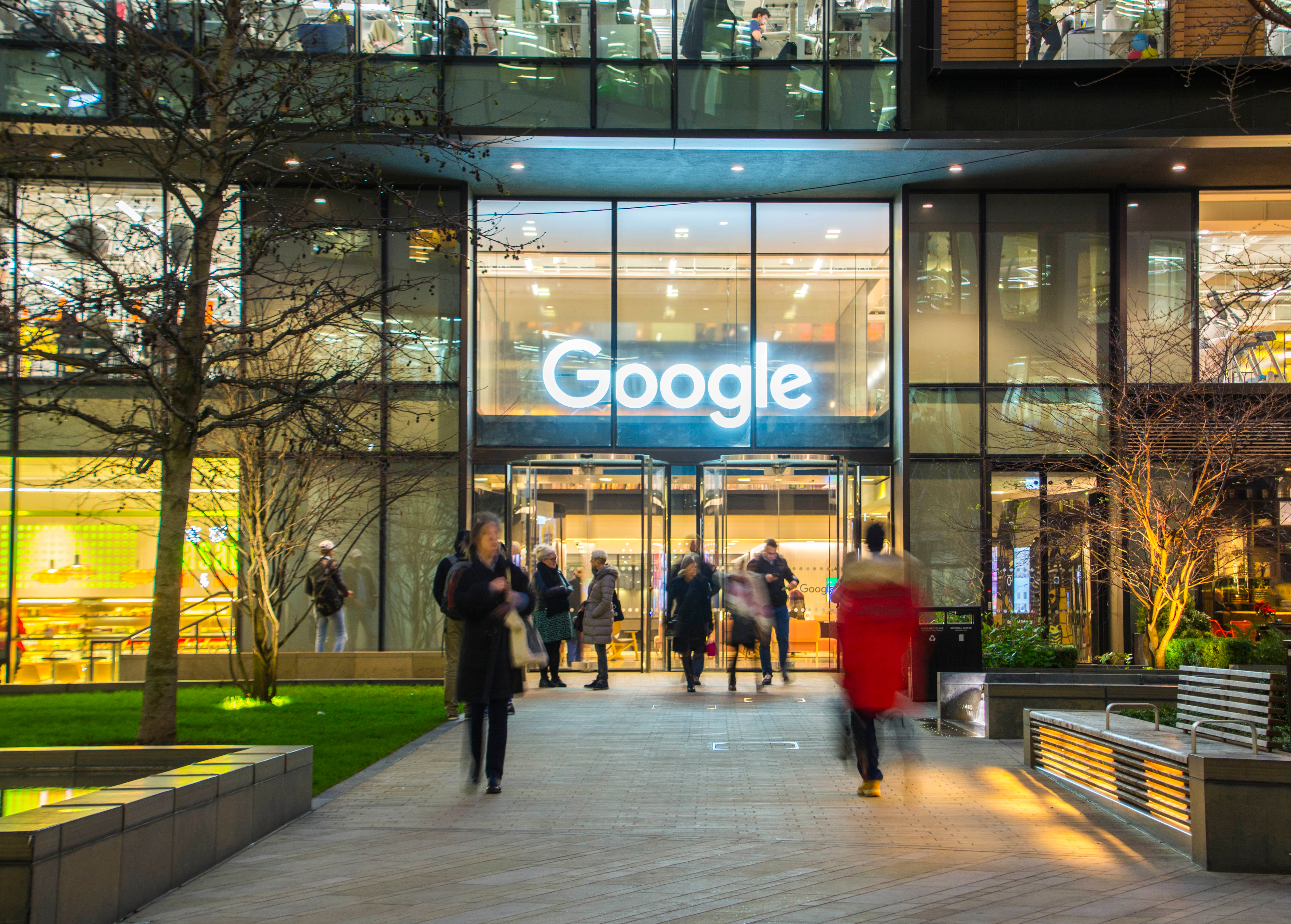 Apple executive rejoins Google over remote work policy
Apple executive rejoins Google over remote work policyNews However, it’s unclear what DeepMind’s remote working policies currently are


